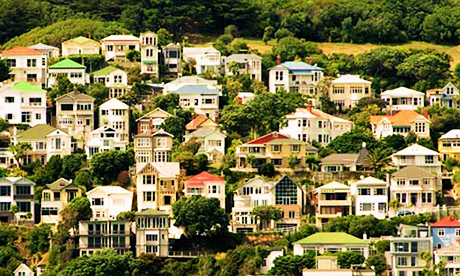Tall white rose bushes line both sides of the path leading to the front door of the immaculate-looking villa.
There are curtains at the windows and no signs of neglect or decay.
Yet this expensive, inner-city home is one of Tāmaki Makaurau’s “ghost houses” – properties left empty long-term at a time when the country has a housing crisis.
No one has lived there for years and a neighbour is paid to maintain the garden, while the owners wait for capital gains to accumulate to the point at which they plan to sell.
According to the 2018 Census, there are approximately 40,000 empty private homes in Auckland. That is 7.3 percent of the total, up from 6.6 percent in the previous Census in 2013.
Auckland is not the only place in Aotearoa with vacant homes at a time when accommodation is expensive and in short supply.
There are ghost homes in other cities, in towns and in rural areas.
Many unoccupied houses are holiday homes, dwellings awaiting demolition or renovation, or properties located in remote places where there are few jobs.
But a significant number are empty simply because the owners are focused on capital gains.
This is now an international phenomenon.
In England it is called “buy to leave,” in New York it is described as “warehousing,” while in British Columbia it is known as “wealth storing”.
Property prices in London trebled between 1996 and 2007, meaning that homeowners made huge capital gains and did not pay the income tax they would be levied on other forms of earnings.
For these people, putting tenants into properties would be a negative because it would make their investments less liquid and therefore less valuable.
Vacant houses are worth more because they offer owners more flexibility and can be sold speedily.
Perhaps the most alarming aspect of this phenomenon is that it means that building more houses might not, in fact, mean more people obtain homes.
Counter-intuitively, rather than providing shelter for the homeless, constructing more homes might simply be increasing the pool of investment properties.
Putting tenants into properties makes investments less liquid and therefore less valuable.
Vacant houses are worth more because they offer owners more flexibility and can be sold speedily.
This calls into question the rationale and effectiveness of government and local authority policies and targets for providing more housing, both in this country and overseas.
It also makes it clear that a broad range of measures is required to address our housing crisis effectively.
In New Zealand, the Government and Auckland Council are examining how vacant houses in the city could be used for the homeless or low-income workers.
Mayor Phil Goff has spoken to ministers and says several thousand vacant homes could be pressed into service, perhaps for the Housing First programme, which finds shelter for homeless people, or for workers such as teachers, nurses and police officers who find it hard to obtain affordable accommodation.
We should look overseas to see what is being done there.
Reoccupying existing homes is much speedier and cheaper financially than constructing new dwellings – in Scotland, for example, the average cost of renovating an empty property is between £6000 and £25,000, compared with the average new-build outlay of £120,000.
In addition, it is less harmful environmentally to renovate than to construct from scratch. Continue reading
Additional readingNews category: Analysis and Comment.




